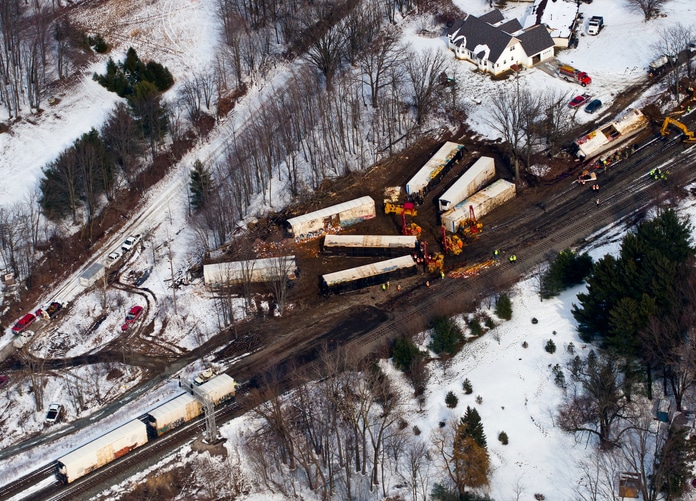Following a series of train derailments in March 2023, including the high-profile disaster in Palestine, Ohio and the ongoing evacuation following a derailment in Raymond, Minnesota, the U.S. Department of Labor’s Occupational Safety and Health Administration (OSHA) released a statement highlighting its efforts “to protect the safety and health of railroad workers in light of recent events.” OSHA notes that railroad operators need to ensure that employees are aware of their whistleblower rights.
OSHA states that “rail operators must comply with regulatory requirements and should follow best practices including: … Ensuring that managers and workers understand that retaliation against employees for reporting hazards and unsafe conditions is illegal, and that workers know they may pursue a whistleblower complaint with OSHA or DOT if they experience retaliation for protected activities under the Occupational Safety and Health Act or the Federal Railroad Safety Act.”
OSHA’s Whistleblower Protection Program enforces the whistleblower provisions of more than 20 federal statutes, including the Federal Railroad Safety Act (FRSA). The FRSA protects employees of railroad carriers, or a contractor (such as a manufacturer or repairer of operational equipment for a railroad carrier), from retaliation for blowing the whistle on safety concerns.
Under the FRSA, railroad workers are able to report violations of federal laws and regulations related to railroad safety to federal regularly or law enforcement agencies as well as members of Congress. Furthermore, under the law, railroad workers are enabled to refuse to work when confronted with an imminent hazardous safety condition.
If a railroad worker faces retaliation, including termination, intimidation, or reduction of hours, in response to blowing the whistle, they have 180 days to report the retaliatory act to OSHA. OSHA will then investigate, and if it determines there was whistleblower retaliation, the whistleblower can be entitled to reinstatement, backpay, and other relief.
In recent years, OSHA has taken a number of enforcement actions against railroad companies for whistleblower retaliation. In August 2021, the Department of Labor announced a decision ordering CSX Transportation Inc. to pay two railroad workers $667,740 for firing them in 2017 after they reported a safety concern.
According to OSHA, the two railroad workers were based in Waycross, Georgia, and in 2017, they “encountered and reported a blue flag that signaled their train could not move safely.” After they made their report, CSX “pulled them from the job and later fired them.” OSHA previously ordered CSX to reinstate and pay back pay to other whistleblowers who faced retaliation for reporting safety concerns.
In 2021, the Department of Labor posted a blog recognizing National Whistleblower Day: “As we recognize National Whistleblower Appreciation Day on July 30, we celebrate all the brave workers, like these drivers, who speak out against unsafe or unfair working conditions, and thank them for their contributions to ensuring safer, more just conditions for themselves and their co-workers. Because of their actions, lives and livelihoods have been saved. ”
The blog post also included information informing employees on their whistleblower rights and the OSHA whistleblower process.
In March 2023, a group of high-profile whistleblowers launched a campaign to make National Whistleblower Day permanent. They are urging President Biden to sign an Executive Order that requires all federal agencies to recognize National Whistleblower Day by informing their employees of their whistleblower rights.
Further Reading:
Working Together to Keep Railroad Workers Safe
U.S. Department of Labor Orders Transportation Company to Pay Two Whistleblowers $667,740
Whistleblowers Launch Campaign to Make National Whistleblower Day Permanent
